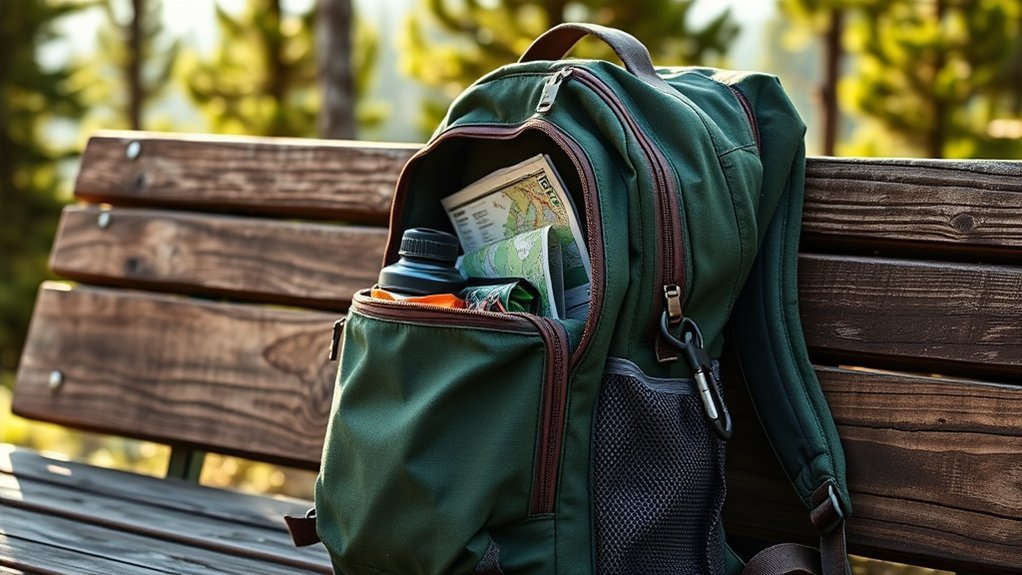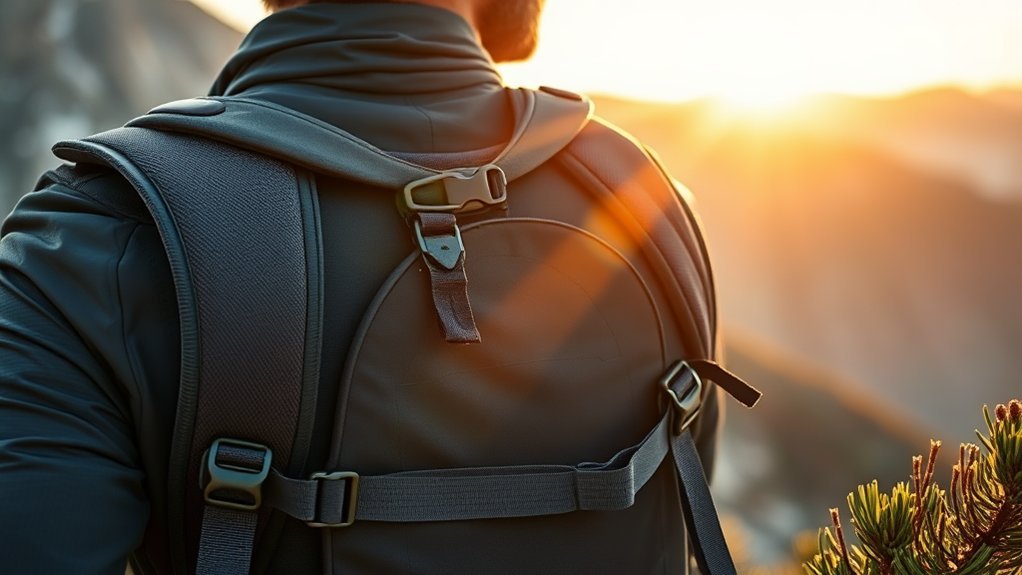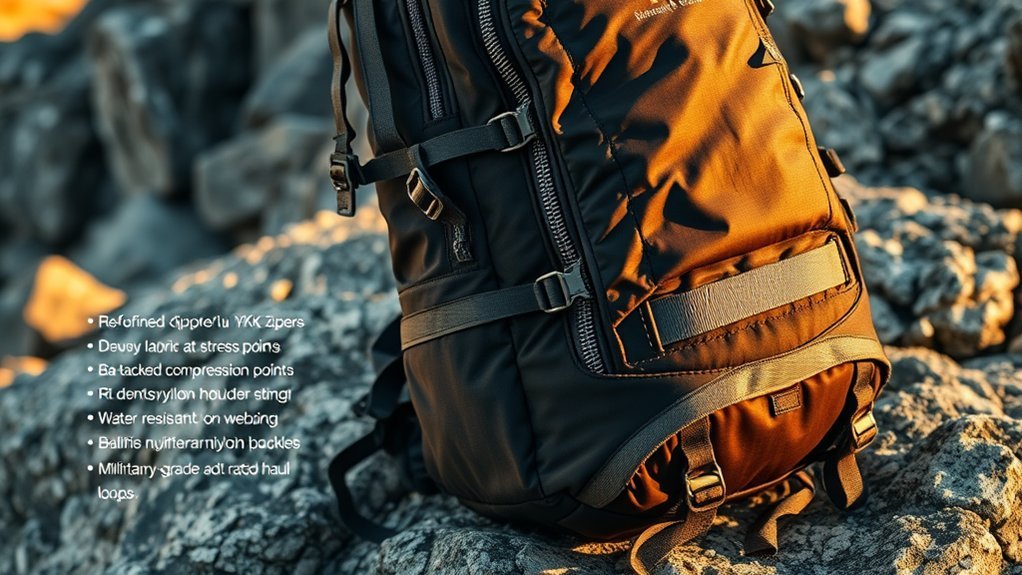The hunt for the perfect day hiking backpack is like finding your trail soulmate – it needs to match your vibe and keep up with your adventures. Trust me, after logging thousands of miles on trails from local nature preserves to gnarly mountain peaks, I've learned that a solid daypack can make or break your hike. No need to stress about all those technical specs and fancy features – I'll break down exactly what you need to look for in a pack that'll carry your gear while letting you crush those miles in comfort. Whether you're just starting to explore your nearby trails or planning some serious summit missions, let's gear up with a daypack that works as hard as you do.
Key Features to Consider When Choosing a Day Hiking Backpack
When you're gearing up for a day hike, choosing the right backpack can make all the difference between a comfortable adventure and a challenging ordeal. Let's explore what makes a perfect hiking companion.
First, we'll want to check the pack's capacity – most day packs range from 15-35 liters, giving us plenty of room in the main compartment for essentials. Comfort is pivotal, so look for padded shoulder straps and a breathable back panel that'll keep you cool on the trail.
Don't forget about organization: multiple pockets, including water bottle pockets, help us keep gear accessible. We'll also want to consider features like hydration compatibility and a sternum strap for stability. Finally, check for durability and water resistance to confirm your pack's ready for whatever nature throws our way.
Top-Rated Overall Day Hiking Backpacks
Anyone seeking the perfect day hiking backpack will find excellent options among today's top-rated packs. We've tested numerous models and found the Osprey Talon 22 delivers outstanding versatility with its ample attachment points and thoughtful design.
For budget-conscious hikers, the Osprey Daylite Plus offers quality construction at a lower price point, while the Osprey Stratos 36 excels when carrying heavier loads thanks to its full metal frame. If hydration is your priority, check out the Osprey Skarab 30, which comes with an integrated water reservoir.
For ultralight enthusiasts, we love the Matador Beast18 Ultralight's impressive technical features packed into a svelte 21-ounce design. Each pack includes essential features like mesh side pockets, adjustable sternum straps, and padded compartments to keep your gear secure and accessible.
Best Budget-Friendly Options for Day Hikers

Finding quality hiking gear doesn't have to drain your wallet, as today's market offers several excellent budget-friendly daypacks under $120. We've tested many affordable options, and standouts like the REI Co-op Flash 22 deliver incredible value at just $60, while the Gregory Citro 24 H20 includes a hydration system for $120.
| Pack Name | Price | Key Feature |
|---|---|---|
| REI Flash 22 | $60 | Ultralight 14 oz |
| REI Trail 25 | $60 | Removable framesheet |
| Dakine June 25L | $70 | External storage |
For versatility, we love the Patagonia Refugio 26L's laptop compatibility, making it perfect for both trail and town. The REI Co-op Trail 25's removable framesheet doubles as a sit pad, proving you don't need to spend big for smart features.
Weather-Resistant Packs for Challenging Conditions
Serious hikers need reliable protection from unexpected weather, and that's where specialized waterproof daypacks come in. We've found the Osprey Downburst 36 to be an exceptional choice for challenging conditions. Its fully waterproof construction features a roll-top closure and taped seams that keep your gear dry in the heaviest downpours.
What really sets the Downburst apart is its durable ripstop nylon fabric and reinforced base, built to withstand rough terrain. The sturdy suspension system handles heavy loads with ease, while multiple pockets and external lash points offer versatile organization options.
With 36 liters of storage space and a solid 7.1 rating, it's ready for any wet-weather adventure. Whether you're hiking through misty mountains or unexpected storms, this pack keeps your essentials protected and accessible.
Comfort and Fit: Finding Your Perfect Pack

While weather protection keeps your gear safe, the way a pack fits determines how enjoyable your hike will be. We'll help you find your perfect daypack that feels like it was made just for you. Today's packs come with amazing comfort features that let you customize the fit to your body.
- Adjustable shoulder straps and hip belts distribute weight evenly across your back
- Ventilated mesh back panels with moisture-wicking fabrics keep you cool on tough trails
- Customizable torso lengths guarantee your pack matches your exact measurements
- Cushioned shoulder straps and hip belts provide comfort when carrying heavy loads
- Sternum straps stabilize and balance your pack for a secure, comfortable fit
Getting the right fit means you'll spend less time adjusting your pack and more time enjoying the freedom of the trail ahead.
Storage Solutions and Organization Systems
A well-organized daypack can make the difference between a smooth hiking experience and a frustrating search for gear on the trail. That's why we're excited to show you the smartest storage solutions in today's hiking packs.
Modern daypacks come loaded with clever features like hydration bladder pockets and quick-access top lids for your trail snacks. You'll love the versatility of compression straps and exterior pockets that let you stash trekking poles or water bottles right where you need them. Inside, you'll find thoughtful internal organization with padded laptop sleeves and zippered pockets to keep your essentials secure.
Many packs now offer collapsible roll-top closures and expandable side pockets, giving you the freedom to adjust your storage space as needed. Best of all, these features work together to distribute weight evenly for a comfortable journey.
Durability Ratings and Construction Quality

The best storage features mean little if your pack falls apart on the trail. We've thoroughly tested today's top daypacks, and durability stands out as vital for any serious hiker. From Osprey's robust frame construction to reinforced nylon fabrics, we're seeing impressive build quality that holds up mile after mile.
Contoured foam back panels provide comfort while resisting wear and compression. Ventilated mesh designs balance airflow with structural integrity. Heavy-duty stitching reinforces high-stress areas around pockets. Durable fabrics resist tears and abrasions on challenging trails. Weather-resistant materials protect gear in varied conditions.
When you're miles from civilization, you need gear you can trust. These packs deliver with construction quality that's ready for your boldest adventures, whether you're tackling technical terrain or exploring new trails.
Frequently Asked Questions
What Is the Best Backpack for Day Hikes?
We recommend the Osprey Talon 22 for its comfortable straps, ventilated back panel, and adjustable suspension. It's got water bottle holders, durable construction, and breathable mesh that'll keep you moving freely on the trail.
What Is the Most Popular Day Backpack?
Picture gliding through mountain trails – we'd recommend the Osprey Talon 22, with its ventilated design, adjustable straps, and breathable mesh panels. It's the most sought-after pack for good reason.
What Size Backpack Is Best for Day Hikes?
We'll help you nail the perfect pack size: 20-30 liters hits the sweet spot for day hikes, offering ideal weight capacity and storage space while maintaining comfort, ventilation, and easy access to essentials.
What Is the Difference Between a Daypack and a Backpack?
We'll find daypacks offering smaller storage capacity and simpler suspension systems for light loads, while backpacks provide advanced weight distribution, organization pockets, and robust features for extended adventures and heavier gear.
Conclusion
We've covered a solid range of day hiking packs that'll work for different trails and budgets. From basic models that get the job done to feature-packed options with all the bells and whistles (literally, some have whistle clips). Finding the right pack isn't rocket science – focus on how it fits your back, how much stuff you need to carry, and whether it can take a beating on the trails. Now that you know what to look for, grab a pack that works for you and test it out on your local trails. Start with shorter hikes to break it in, then work your way up to bigger adventures.